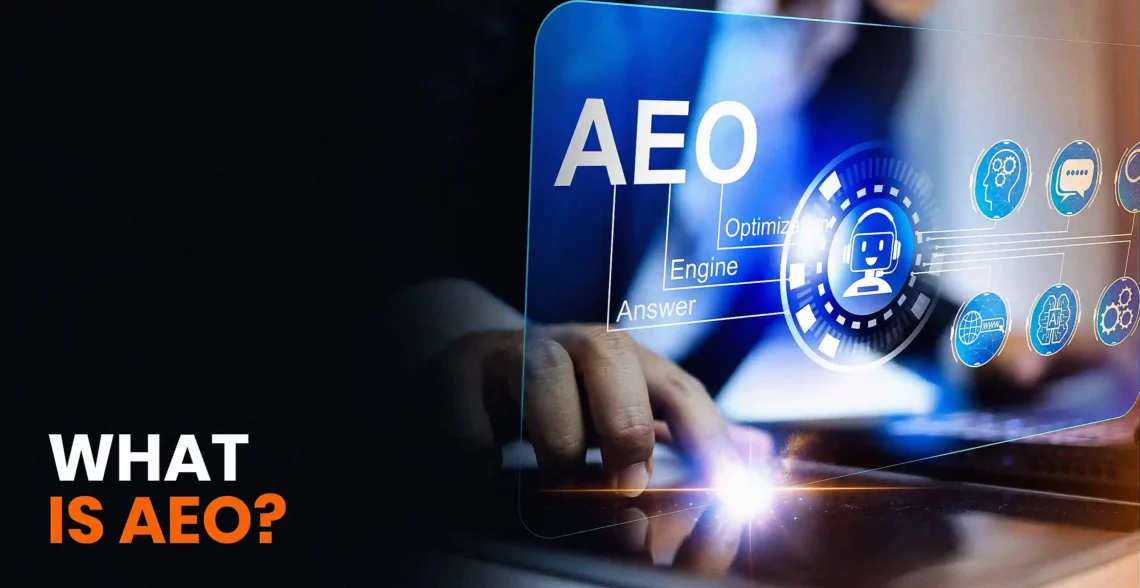
How a GEO Marketing Agency Helps Multilocation Brands Improve Local Visibility
How Do Multilocation Brands Benefit From Partnering With A GEO Marketing Agency?
A GEO marketing agency specializes in optimizing local search presence for businesses operating across multiple locations, ensuring each site appears prominently in its specific geographic market. These agencies deploy location-based strategies that connect multilocation brands with nearby customers actively searching for their products or services.
Local visibility directly impacts foot traffic and revenue for businesses with physical locations. When each branch ranks well in local search results, the brand captures more qualified leads ready to visit or purchase. Without proper geographic optimization, even well-known brands risk losing customers to competitors who appear first in “near me” searches.
Partnering with a GEO marketing agency delivers measurable advantages:
- Consistent NAP data across all online directories and platforms
- Improved local search rankings for each individual location
- Centralized control with flexibility for location-specific customization
- Enhanced customer engagement through localized content and review management
- Data-driven insights to optimize performance across all markets
This specialized expertise helps multilocation brands scale their local presence efficiently whilst maintaining brand integrity across diverse markets.
What Is Local SEO Optimization And Why Is It Crucial For Each Location?
Local SEO optimization targets geographically specific search queries to help individual business locations appear in relevant local search results. When customers search for “coffee shop near me” or “plumber in Manchester,” local SEO determines which businesses appear in the coveted map pack and organic listings.
Each location requires its own optimized presence because search engines treat every physical address as a distinct entity. A restaurant chain with 50 locations needs 50 separate, fully optimized profiles to capture local search traffic effectively.
NAP consistency forms the foundation of successful local SEO. Name, address, and phone number data must match exactly across:
- Google Business Profiles – the primary driver of local search visibility
- Apple Business Connect – crucial for Apple Maps and Siri results
- Bing Places – reaching Microsoft’s search ecosystem
- Directory listings and citation sources
Beyond accurate NAP data, each profile demands location-specific categories, detailed descriptions incorporating geo-specific keywords, high-quality photos, operating hours, and service area definitions. This granular optimization ensures search engines confidently display the right location to nearby searchers.
How Does Geo-Tagging Improve Search Rankings And User Engagement?
Geo-tagging embeds geographical metadata directly into images, videos, and other digital content, signalling to search engines the precise location where that content is relevant. This metadata includes coordinates, city names, and regional identifiers that help search algorithms understand which audiences should see your content.
Search engines prioritise localized content that matches a user’s geographic intent. When a potential customer searches “coffee shop near me” or “plumber in Manchester,” geo-tagged content appears more prominently because the metadata confirms its relevance to that specific area. This location context directly impacts ranking positions in local search results.
User engagement improves significantly when people encounter content tailored to their immediate surroundings. Geographical metadata enables multilocation brands to serve location-specific offers, events, and store information automatically. A customer in Leeds sees Leeds-specific promotions, whilst someone in Bristol receives Bristol-relevant content—creating personalized experiences that drive higher click-through rates and longer session durations. This targeted approach transforms generic brand messaging into meaningful local interactions that resonate with community-specific needs and preferences.
Why Is Centralized Management With Local Flexibility Important For Brand Consistency?
Centralized management with local flexibility prevents brand fragmentation whilst empowering individual locations to connect with their specific communities. Platforms like Mobilosoft, Uberall, and Yext enable multilocation brands to maintain unified messaging, visual identity, and core business information across hundreds or thousands of locations from a single dashboard.
These systems allow headquarters to set non-negotiable brand standards—logos, colour schemes, service descriptions, and approved messaging—whilst granting local managers permission to customize elements that resonate with their neighbourhood. A restaurant chain might enforce consistent menu descriptions centrally but allow individual locations to highlight locally popular dishes or community events.
This dual approach addresses a critical challenge: maintaining recognizable brand identity without sacrificing the authentic local presence that drives customer trust. Local teams can respond to area-specific customer reviews, update holiday hours for regional observances, and adjust content for cultural relevance—all within guardrails that protect brand integrity. The result is a cohesive brand experience that feels personally relevant at every location.
What Impact Do Customer Reviews Have On Local Trust And Visibility?
Customer reviews directly influence how prominently each location appears in local search results and whether potential customers choose to visit. Google’s algorithm prioritises businesses with higher review volumes and ratings, pushing them up in local pack rankings and map results.
Active reputation management transforms reviews into powerful trust signals. Each location needs a systematic approach to collecting feedback immediately after customer interactions—through SMS requests, email follow-ups, or in-store prompts. Responding to every review, positive or negative, demonstrates commitment to customer satisfaction and keeps listings active in search algorithms.
The impact on local trust extends beyond rankings. Research shows 87% of consumers read online reviews before visiting local businesses, with recent reviews carrying the most weight. A location with 50+ reviews averaging 4.5 stars will consistently outperform competitors with fewer reviews, even if those competitors have perfect 5-star ratings. Negative reviews, when addressed professionally and promptly, can actually strengthen credibility by showing authentic customer engagement and problem resolution.

How Can Geolocalized Advertising Drive Store Traffic Effectively?
Geolocalized advertising targets potential customers within specific geographic boundaries through paid campaigns on platforms like Google Ads, Facebook, and Instagram. These geo-targeted ads use location data to display promotions exclusively to users near a particular store location, ensuring marketing budgets reach the most relevant audiences.
The precision of geo-targeted campaigns allows brands to:
- Create radius-based targeting around each physical location
- Adjust ad messaging based on local events, weather, or demographics
- Schedule campaigns during peak foot traffic hours for maximum impact
- Offer location-specific promotions that drive immediate store visits
Success measurement extends beyond digital metrics. Advanced tracking connects online ad exposure to offline behaviour through:
- Store visit conversions tracked via mobile location services
- Coupon redemption rates from location-specific offers
- Call tracking showing which ads generate phone inquiries
- Foot traffic attribution comparing baseline visits against campaign periods
A restaurant chain running geo-targeted ads within a 5km radius during lunch hours can directly measure the increase in dine-in customers, providing clear ROI data that justifies continued investment in location-specific advertising strategies.
How Does Content Localization Improve Engagement And SEO For Each Location?
Content localization transforms generic brand messaging into hyper-relevant experiences that resonate with specific communities. A GEO marketing agency creates unique website pages for each location featuring neighbourhood-specific keywords, local landmarks, and community events that search engines prioritise when users search for nearby services.
Local content marketing extends beyond websites to social media platforms where each location’s profile shares posts about:
- Regional promotions and seasonal offers
- Local team member spotlights and community involvement
- Area-specific customer testimonials and success stories
- Neighbourhood events and partnerships
This approach directly impacts search engine rankings because Google’s algorithms favour content demonstrating genuine local relevance. When a GEO marketing agency helps multilocation brands improve local visibility through tailored content, each location appears more authoritative in its specific market.
User engagement metrics improve dramatically when customers encounter content reflecting their immediate environment. Location-specific landing pages with locally optimised meta descriptions, headers, and imagery increase click-through rates whilst reducing bounce rates—signals that boost organic search performance across all locations. Visit https://www.business.qld.gov.au/running-business/marketing-sales/marketing/websites-social-media/seo to get more about SEO.
What Role Do Analytics And Reporting Play In Optimising Local Marketing Performance?
Analytics tools and reporting transform raw data into actionable insights that drive better local marketing decisions. GEO marketing agencies track visibility metrics like search impressions, map views, and click-through rates for each location, revealing which stores perform well and which need attention.
Customer interaction data—including calls, direction requests, website visits, and booking conversions—provides a complete picture of how audiences engage with each location. This granular tracking identifies patterns such as peak engagement times, preferred contact methods, and conversion bottlenecks specific to individual stores.
Data-driven optimisation allows agencies to:
- Adjust underperforming Google Business Profiles with better photos or updated information
- Reallocate advertising budgets from saturated markets to high-potential locations
- Refine keyword strategies based on actual search queries driving traffic
- Test different content approaches and scale what works
Reporting dashboards consolidate performance across all locations, making it simple to compare results and spot trends. When a location’s visibility drops or engagement stalls, agencies can quickly diagnose issues—whether it’s outdated NAP data, negative reviews, or weak local content—and implement targeted fixes that restore performance.
Other Resources : What Is Umbraco CMS and How Does It Compare to Other Enterprise Platforms in 2025?
What Challenges Do GEO Marketing Agencies Face When Managing Multilocation Brands?
Managing hundreds or thousands of business locations creates significant listing consistency challenges that can undermine local visibility efforts. Keeping NAP data accurate across Google Business Profile, Apple Business Connect, Bing Places, and dozens of other directories requires constant vigilance, as even minor discrepancies—like “Street” versus “St.”—can confuse search engines and harm rankings.
The brand messaging balance presents an equally complex challenge. Agencies must preserve core brand identity whilst allowing each location to speak authentically to its local market. Too much standardization makes content feel generic and disconnected from the community. Too much localization risks fragmenting the brand’s voice and diluting recognition.
These challenges intensify when:
- Local managers update information independently without centralized oversight
- Business hours, services, or contact details change frequently
- Franchise locations operate with varying degrees of autonomy
- Multiple teams access listing management platforms simultaneously
Addressing these obstacles demands robust systems, clear protocols, and specialized expertise that most multilocation brands lack internally.

Why Should Multilocation Brands Engage A GEO Marketing Agency For Growth?
Multilocation brands that partner with a GEO marketing agency gain access to specialized expertise that transforms local visibility into measurable business growth. These agencies possess the technical knowledge, platform relationships, and strategic frameworks needed to improve local visibility across dozens or hundreds of locations simultaneously.
The complexity of managing local SEO, review responses, geo-targeted advertising, and location-specific content requires dedicated professionals who understand the nuances of how a GEO marketing agency helps multilocation brands improve local visibility. Internal teams often lack the bandwidth or specialized skills to execute these strategies effectively at scale.
Key advantages of professional GEO marketing support include:
- Faster implementation of best practices across all locations
- Access to enterprise-level platforms and analytics tools
- Continuous optimization based on performance data
- Proactive management of reputation and local search presence
Ready to dominate local search results in every market you serve? Connect with a GEO marketing agency that understands your multilocation challenges and can deliver consistent, scalable results that drive foot traffic and revenue growth.
FAQs-How a GEO Marketing Agency Helps Multilocation Brands Improve Local Visibility
A GEO marketing agency specializes in improving local search visibility for businesses with multiple physical locations. It ensures each branch ranks prominently in local search results through optimized Google Business Profiles, consistent NAP data, localized content, and geo-targeted advertising—helping brands connect with nearby customers actively seeking their products or services.
2. Why is local SEO optimization important for each business location?
Each business location is treated as a unique entity by search engines. Local SEO optimization ensures every location ranks in its relevant market, capturing local search traffic effectively. This includes optimizing Google Business Profiles, maintaining consistent NAP data, adding local keywords, and creating unique content tailored to each area.
3. How does geo-tagging improve local search rankings?
Geo-tagging embeds precise geographic metadata into digital content such as images and videos. This helps search engines understand the local relevance of that content, improving visibility for “near me” searches. Geo-tagging also enhances user engagement by delivering location-specific offers, promotions, and information that feel personally relevant.
4. What are the benefits of centralized management with local flexibility?
Centralized management maintains brand consistency across all locations, while local flexibility allows stores to tailor messages for their communities. GEO marketing platforms like Yext or Uberall enable brands to control global standards—logos, descriptions, and policies—while letting local teams adjust for regional preferences, events, and reviews.
5. How do customer reviews influence local search visibility and trust?
Customer reviews are a major ranking factor for local SEO. Locations with more frequent and recent positive reviews appear higher in Google’s local results. Responding to reviews—both positive and negative—builds credibility and signals engagement to search algorithms, improving visibility and customer trust simultaneously.
6. How does geolocalized advertising drive in-store traffic?
Geolocalized advertising uses precise location data to target nearby customers with relevant ads on platforms like Google, Facebook, and Instagram. Brands can create radius-based campaigns promoting store-specific offers, track conversions via mobile data, and measure foot traffic to assess ROI—maximizing visibility where it matters most.
7. Why is content localization key to improving engagement and SEO?
Localized content helps each store connect authentically with its community. By creating city-specific landing pages, social posts, and meta descriptions with local keywords and references, GEO marketing agencies improve rankings for location-based searches and increase engagement by making content personally meaningful to nearby audiences.
8. What role do analytics and reporting play in GEO marketing success?
Analytics provide real-time visibility into local performance metrics like map views, clicks, calls, and direction requests. GEO marketing agencies use this data to identify underperforming locations, refine keywords, adjust ad targeting, and optimize profiles—ensuring every branch achieves maximum local visibility and engagement.
9. What challenges do multilocation brands face in managing local SEO?
Common challenges include maintaining NAP consistency across hundreds of listings, handling review management, and balancing centralized branding with localized authenticity. Without expert oversight, inconsistencies and outdated information can harm rankings. GEO marketing agencies resolve these issues through automation, monitoring, and data synchronization tools.
10. Why should multilocation brands hire a GEO marketing agency?
Hiring a GEO marketing agency provides the expertise and systems needed to manage complex local marketing at scale. These agencies ensure each location achieves optimal visibility, consistent branding, and measurable ROI. From local SEO to geo-targeted ads and review management, they drive both online discovery and in-store traffic.


